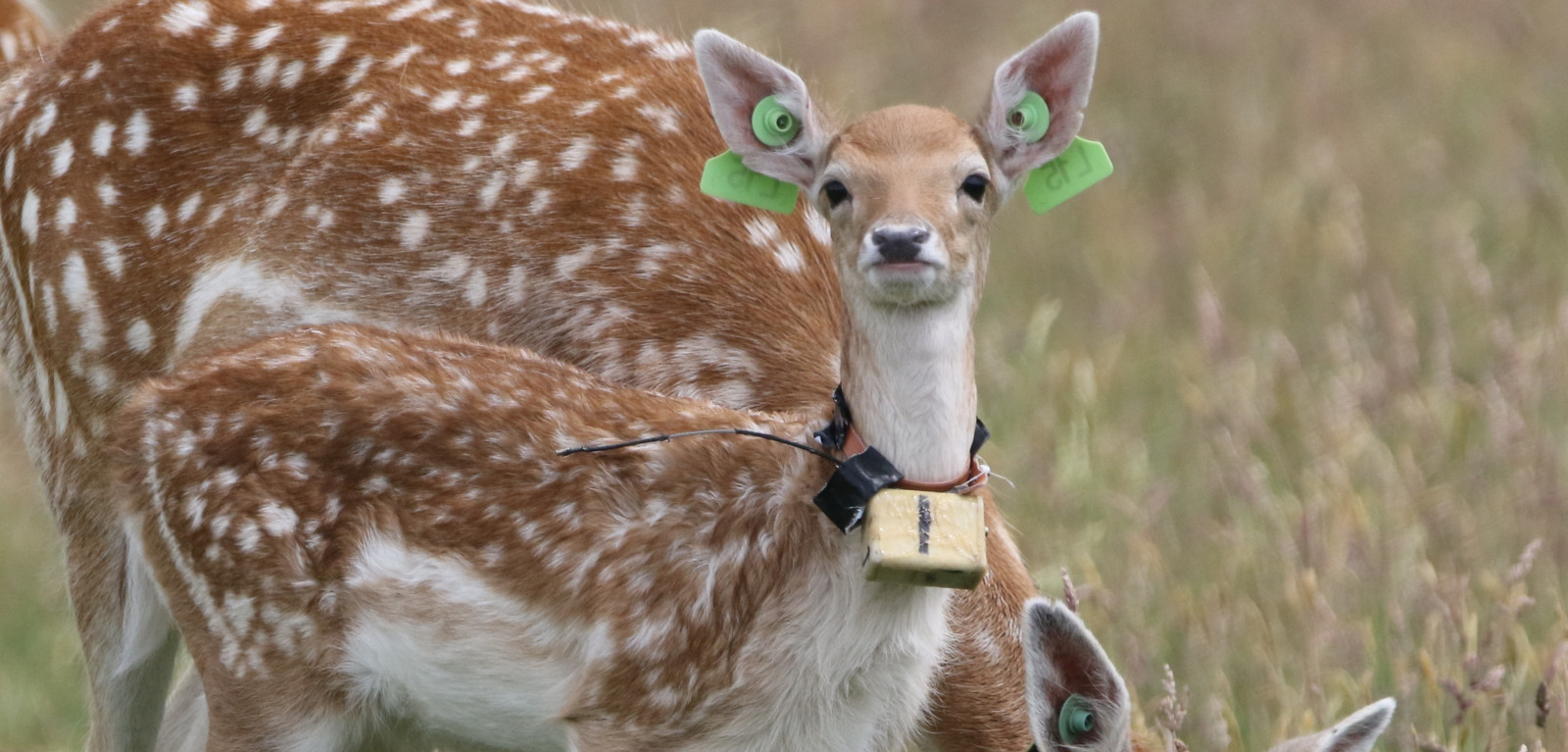New research has revealed that newborn fallow deer fawns differ both in sleeping patterns and the rate of development from birth on an individual basis, as we see in newborn human babies, in the first study of its kind led by Queen’s University Belfast.
The researchers recorded the sleeping behaviour of free-ranging fallow deer fawns during the first five weeks of life at Phoenix Park in Dublin. They used minimally-invasive biologging technology, developed by WildBytes and Swansea University, to track the animals while they remained hidden in the woods and vegetation, and isolated from their mothers and wider herd.
Good sleep is essential for health in humans and other animals, playing a fundamental role in development. This study shows the marked and consistent individual differences among deer in sleep quantity, quality and fragmentation, as well as the rate sleep develops – in the first week of life, the shortest sleeping fawn slept about half the time of the longest sleeping fawn.
The fieldwork was actually carried out in Dublin, but everything else seems to be UK based.


